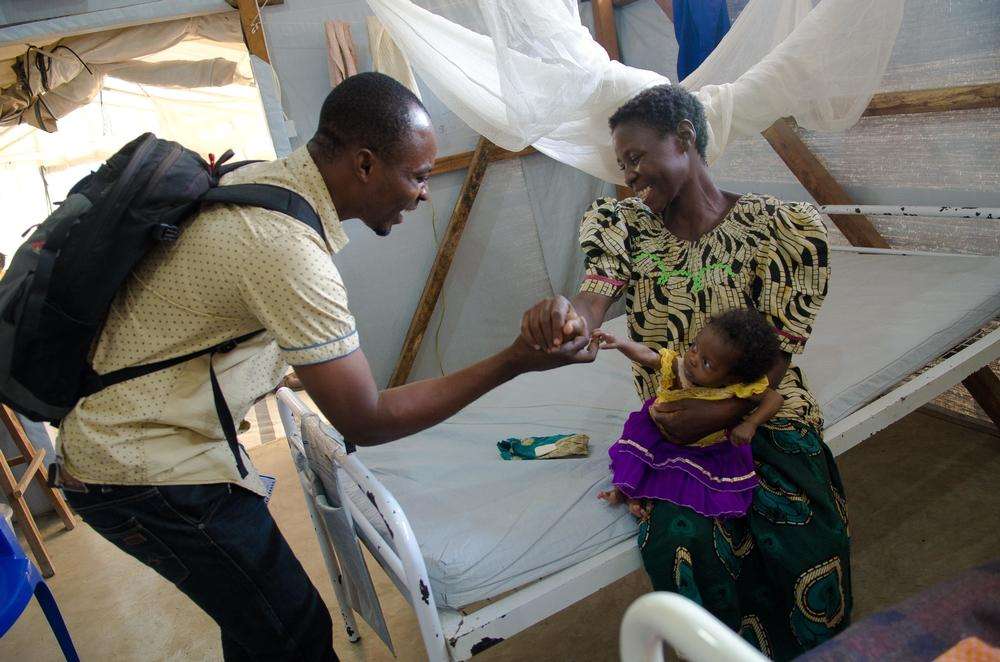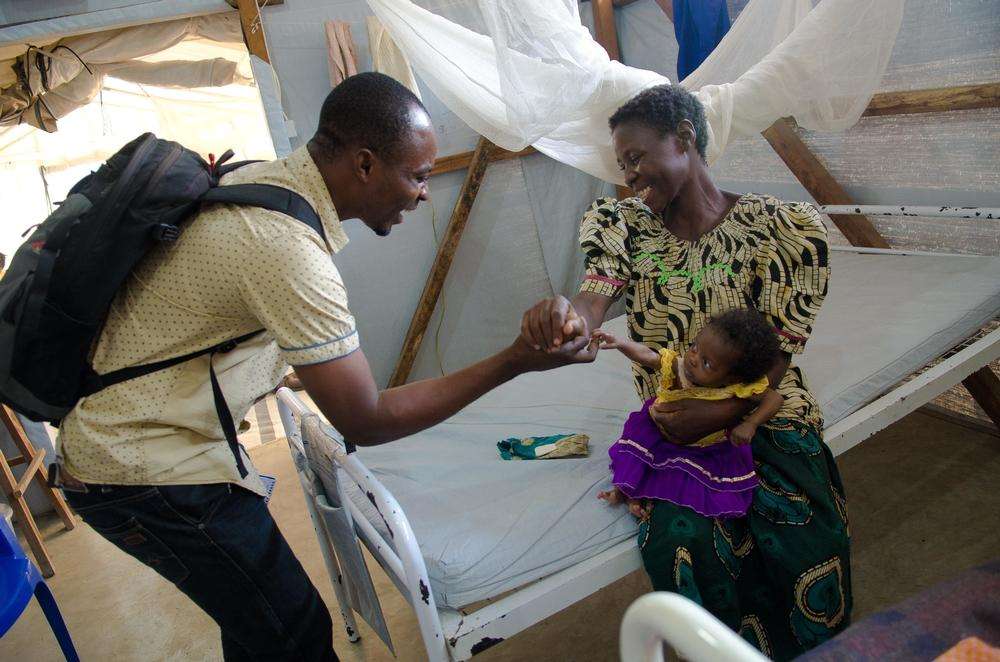In the town of Manono, the seasons are punctuated by diseases. Here, in the southern region of Democratic Republic of Congo (DRC), cases of respiratory infection and diarrhea spike in the dry season, when people often have no choice but to drink water from rivers. Then comes the rainy season. Crops grow, temperatures cool, and mosquitoes swarm—transmitting malaria to the community.
Malaria, diarrhea, and respiratory infections are especially dangerous for children. At Manono hospital, Doctors Without Borders/Médecins Sans Frontières (MSF) works to reduce child deaths and improve public health by educating the community.
The MSF outreach team is responsible for educating mothers and other caregivers in the hospital’s children’s ward about how to prevent life-threatening diseases and infections. “Do you know MSF?” calls out Antoine, an MSF aid worker. “Yes, I know MSF. MSF treats children!” is the resounding response from the patients.
Children under five are MSF’s main focus, as they are especially vulnerable to the health dangers in the region, which can all be fatal if not treated properly. In Manono, MSF runs a 120-bed intensive care unit, a recovery room, an intensive therapeutic feeding center, and a neonatal unit.
In the hospital, Antoine and another MSF response worker, Meria, advocate for practices that can reduce exposure to health risks. They demonstrate how to use mosquito nets—both indoors and outdoors— to protect from the female Anopheles mosquitos that transmit malaria. They also give useful hygiene tips to reduce threats of infection and mosquito bites, like keeping the area around houses clean, covering all places where water collects, and washing dishes immediately after meals.
Community volunteers help the MSF response team spread sanitation tips through the village: handwashing; washing fruit, vegetables, and other foods before eating; boiling water before drinking; and recognizing the early signs of illness.
MSF began working in Manono Hospital and its outlying health centers almost a year ago, supporting local medical staff in dealing with a measles outbreak, and then a nutrition crisis. Since then, cases of measles have dried up, and the number of children with severe acute malnutrition has fallen significantly. But in the hospital, the children’s emergency room is always full, and teams have even had to set up more beds. From January to August 2016, nearly 4,700 children received inpatient care in the hospital.
Further north, in Kabalo, MSF ended an emergency response in early September, after the measles epidemic ended and the nutrition situation stabilized. In total, MSF teams in Kabalo admitted 460 children suffering from severe acute malnutrition with medical complications, and provided 1,762 malnourished children with outpatient care. However, teams stand ready to respond to new medical or humanitarian crises, which are unfortunately frequent occurrences in the region.





